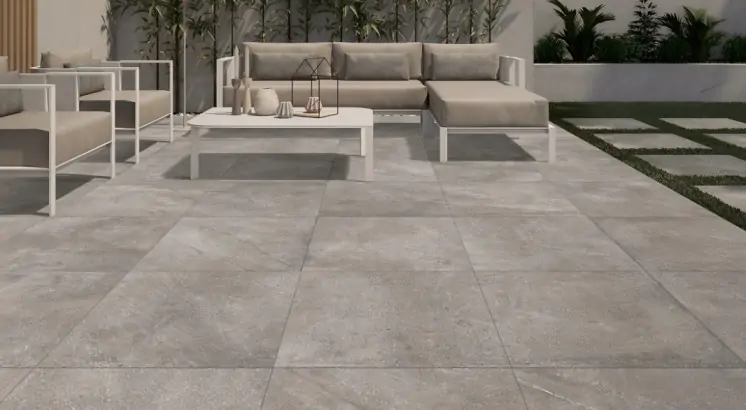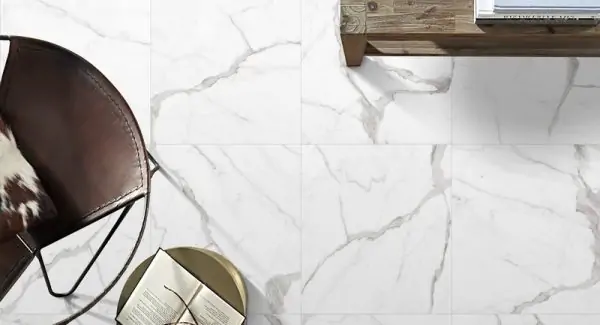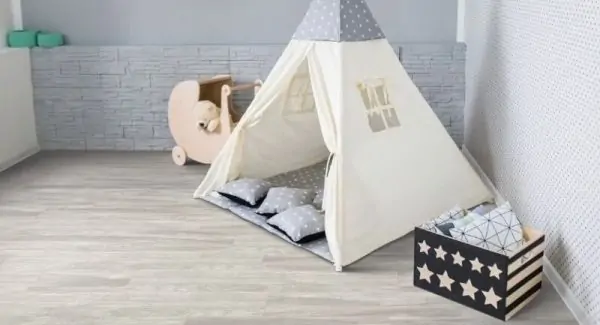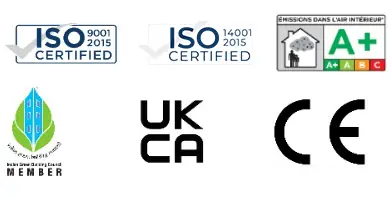Browse products by
Filter By Type
Filter By Finish
Filter By Look
Filter By Application
Filter By Type
Filter By Look
Filter By Application
Filter By Size
How To Know If Tiles Are Anti-Skid? – Guide by Lavish Ceramics
Aug 2023
Determining whether a tile is slippery can be quite particular. Different people walking on similar flooring with similar footwear would have different remarks about the tile being slippery as they all have different grip levels. For some, the tile would be slippery, while the others would firmly walk over it. So, how can one determine if the tile is slippery or anti-skid? Through this blog, let’s learn how to check if the tiles are slippery or anti-slip.
Be it interiors or even exterior areas, tiles play an essential role in any kind of space. They not only add to the pleasing outlook of the area but also provide a protective layer to the flooring and walls. However, when it comes to floor tiles, they at time can be risky due to heavy moisture in certain areas like kitchens, stairs, bathrooms, etc. No doubt, there are nonslip tiles available in the market with a matte or lapato finish, but they are still safe to some extent. If your family consists of children, infants, patients, or elder members, such non-slip tiles might be slippery for them. And hence, they can be prone to unwanted injuries and accidents.
The ultimate solution to this issue is looking for anti-skid tiles that can be used both indoors and outdoors where an additional layer of protection is needed like hospitals, hotels, nurseries, schools, pool areas, etc. But how can one determine whether the tile is anti-skid or not? Let’s explore more about it to know it thoroughly.
What are Anti-Skid Tiles?
Popularly known as anti-slip or non-slip tiles, anti-skid tiles are PGVT tiles that are particularly designed for special floors with added traction. They are used for floors where prevention from accidents and slipping is highly needed. Hence, such tiles are widely used in areas with high levels of moisture such as bathrooms, pool areas, kitchens, outdoor areas, patios, kitchens, etc.
The anti-skid tiles are designed with a matte or rough surface that is enhanced with punch. Punch provides the tiles with an additional texture that surges the friction between your feet or say the footwear and the tiles. When the tiles are designed with a combination of matte and punch finishing, it adds to the stability and grip of the tiles. This reduces the chances of any injuries and accidents even if the floor is wet.
So, why should one choose anti-skid tiles? Are you also thinking the same? Here are some reasons that would help you figure out.
Anti-skid tiles are the best to install if your property is prone to moisture. When the surface remains wet for long hours, it is sure to turn slippery when glossy tiles are used. But if you select matte tiles they would be less slippery. The anti-skid tiles are designed with a punch as well as a matte finish that increases friction reducing the chances of any accidents. Hence they are the best for people with restrictive mobility and balanced skills.

How to Know if Tiles are Anti-Skid?
The right answer to this question is R Ratings. According to Lavish Ceramics, one of the leading manufacturers in the tile industry, R Ratings is given to all the tiles that help in determining the slipping rates of the tiles through various test methods. Every tile is given an anti-slip rating that helps in learning how slippery are the tiles.
Let’s learn the different grades of anti-slip tiles.
R9 to R13 Anti-slip Grading
Nearly every tile is given an anti-slip rating which is different from the PEI wear rating. The R Rating helps in learning the slip risk of any flooring or tile sample. This rating is termed the “R” value in which R means Ramp Test Method. According to the Ramp Test Method, the R-value can range from R13 to R9, in which R13 is the highest slip resistance value while R9 is the lowest slip resistance value. Hence, the value of R helps in determining the resistance value of tiles in which R13 means the least slippery value even if the floor is wet.
Wet Anti-Slip Ramp Test
The next method of determining how slippery the tiles are is the DCOF method. The Dynamic Coefficient of Friction, or DCOF test is an identical method of testing the slip resistance value of the tiles developed by the American National Standards Institute. When any manufacturer wants to know about the certification of its tiles, they send it to the DCOF lab and get it tested to learn if it meets the ANSI 137.1 standards or not. The Tile Council of North America wets the tile surface and uses a small mechanical monitor on it. If the result of the test is a number around 0.42, it means the tiles are safe for the walkers and provide enough grip till the tile is dry. The tiles whose test result numbers are lower than 0.42 are widely used in areas like food courts, malls, commercial buildings, hotel lobbies, etc. Such tiles are easy to clean and appear desirable. They also keep the floors dry for proper grip while walking.
A DCOF greater than 0.42 is claimed to be a safe tile for walking on even if it’s wet. Hence, such tiles are advised for wet areas like bathrooms, pool areas, kitchens, etc. Hence, the next time you select a tile, make sure it contains the DCOF or ANSI 137.1 mark. If it doesn’t, it means the tiles are surely going to be slippery.
It should also be noted that the DCOF of the tiles can easily change according to the surface. If the surface is wet with water, tiles having a DCOF of around 0.42 would do. But if the area is wet with the soapy substance of shampoo, the DCOF needs to be reduced.
Henceforth, it can be said that anti-skid porcelain tiles can easily be selected, however, it should be kept in mind that a salesperson or installer determines the right anti-skid tile for you perfectly.
Similar Articles


That which is unique is always rare and special, so is with the finesse of Lavish tiles. Lavish is synonymous with excellent quality tiles that define the beauty of a well tiled space. One of the largest manufacturer and exporter of ceramic tiles, wall tiles and floor tiles, double charge vitrified tiles, polished glazed vitrified tiles, glazed vitrified tiles and digital tiles, Lavish is famous for adding that sense of grandeur and splendor through sheer product quality.








Leave a Reply